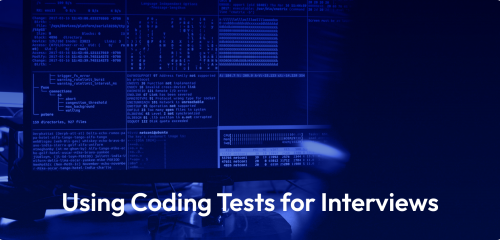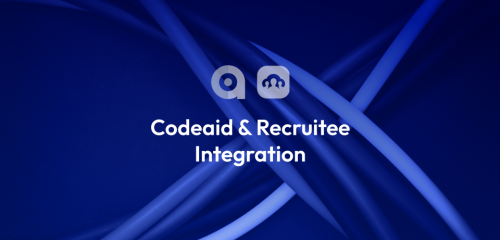The most important factor is hiring the right employees who would fit well into your existing work environment, have the right skills, and be highly motivated.
But how do you identify them in the vast pool of candidates?
Here’s where pre-employment tests come in.
Such tests can help you make a well-informed, unbiased decision by giving you an accurate overview of the candidate’s skills, knowledge, and characteristics.
As a hiring manager, you need to know what pre-employment testing is, why it’s important, the different types of tests you can use, and their benefits.
Let’s dive in!
What is Pre-employment Testing?
Pre-employment testing is a method used to assess job candidates before hiring them. Such tests evaluate the candidate’s skills, qualifications, and competence relative to the position they’re applying for.
As an HR manager, you can adopt different pre-employment test types depending on what area you want to evaluate. For example, you can test candidates on their:
- Job knowledge
- Personality traits
- Emotional intelligence
- Technical proficiency
- Soft skills
The aim of these tests is to understand whether the candidate could be a suitable fit for the job position.
The Importance of Pre-employment Testing in Modern Hiring Practices
Pre-employment testing provides in-depth insights into the candidate’s abilities and knowledge beyond resumes and interviews. These tests can also help you predict the candidate’s success in the job role.
By adopting such assessments, you can understand whether the applicants possess the required competencies and characteristics for a particular job. This leads to:
- Lower hiring risks: You can reduce the rate of bad hires as these tests can help determine whether the candidate’s personality fits the given position.
- Higher chances of finding the right fit: The tests can help you understand which candidates can move on to the next stage in the hiring process. They also give insights into whether the applicant has the knowledge, skills, and mindset that will set them to success in your organization.
- Better hiring practices: Employment tests can help you reduce bias and discrimination as they put emphasis on the candidate’s skills. The tests can also help you identify critical areas and topics you can touch upon during the interview stage of the hiring process.
From Biased Evaluation to Smart Hire: The Evolution of Pre-employment Testing
In the past, hiring decisions relied heavily on resumes, subjective evaluations, references, and interviews. However, this type of evaluation often:
- Proves inaccurate
- Can lead to higher turnover rates
- Triggers unconscious bias that affects the final hiring decision
But advancements in technology and data-driven approaches have revolutionized the field.
Today, modern pre-employment tests give a much more accurate candidate profile since they’re designed to be reliable, valid, and unbiased. This provides a more precise assessment of candidates’ abilities and potential.
6 Types of Pre-employment Tests
There are various types of pre-employment tests that target specific aspects of a candidate’s suitability for a role. These tests include:
Cognitive Abilities Tests
This pre-employment proficiency test evaluates the candidate’s problem-solving, critical thinking, and logical reasoning skills. The test can focus on measuring the candidate’s:
- Verbal reasoning
- Numerical reasoning
- Mechanical reasoning
Cognitive abilities tests can help you predict job performance with high accuracy as they give a great breakdown of the candidate’s strengths and weaknesses.
Here you can ask the candidate to identify logical relationships between different concepts, showcase their quantitative and/or abstract abilities, and even spatial reasoning, depending on the job position itself. For example, some more general questions you can ask include:
- What has been your most rewarding work-related project? Why?
- How would you learn how to use new technology in this role?
- What do you hope to achieve in two years?
Personality Tests
Personality tests assess whether a candidate’s behavioral profile fits within the organization and job position they’re applying for.
Here, recruiters use tests like:
The personality test type is mostly used when hiring for customer service, sales, and other similar roles that deal with direct customer interactions. However, these tests should be coupled with a skills-related test to give a more precise evaluation.
Skills Tests
A skills test focuses on the candidate’s knowledge and ability to perform the job they’re applying for.
This covers the technical knowledge and expertise related to a given job position. For example, if you’re hiring software developers, you can incorporate an advanced coding test into your recruiting process. This will show the candidate’s ability to:
- Write code
- Design the overall architecture of the software
- Design and optimize databases
- Find and correct errors in software code
Such tests are a must-have, especially if you’re hiring for highly technical positions.
Aptitude Tests
An aptitude test shows whether a candidate can easily learn new skills and adapt to new situations.
Such tests focus on the applicant’s general intelligence and can assess a specific skill set, such as analytical or problem-solving skills.
Some questions included in this type of test are:
- In a group of 60 people, 40 like coffee, 30 like tea, and 20 like both coffee and tea. How many people in the group do not like either coffee or tea?
- A lion covers a distance of 1500 meters in 1 minute 20 seconds. At what speed is the lion running?
This type of pre-employment competency test can predict job performance with good accuracy and is widely used in recruiting for mid and senior-level positions.
Integrity and Honesty Tests
This is a type of risk assessment test that is usually used to evaluate the likeliness of employees acting in unsafe or counterproductive ways.
The integrity and honesty test focuses on the applicant’s reliability and compliance with company regulations and rules.
Additionally, they can reduce the time and costs spent on applicant screening. That’s because such tests can help you identify and eliminate applicants who might behave in a way that damages the organization’s integrity.
Situational Judgment Tests
Situational judgment tests give candidates realistic work-related scenarios and assess their judgment, decision-making skills, and problem-solving abilities.
These tests provide insights into how candidates would handle challenging situations in the workplace and measure their effectiveness in:
- Conflict management
- Cultural awareness
- Interpersonal skills
- Negotiation skills
- Ability to work in a team
The situational judgment test also identifies the applicant’s leadership and managerial qualities.
Benefits of Pre-employment Testing
Pre-employment testing is not only essential for evaluating candidates, but it also comes with tons of benefits like:
Improved Hiring Decisions
Let’s face it: traditional hiring evaluations can lead to subjectivity and unconscious bias. In turn, this can lead to suboptimal hiring decisions.
However, pre-employment testing is more objective than these traditional methods and enables recruiters to make more informed and reliable hiring decisions.
Evaluating candidates against the same standardized test makes the assessment process more consistent and reduces bias and subjectivity.
The result? You achieve better candidate selection and increased chances of success in the role, which is what we’re all looking for.
Time and Cost Efficiency
The recruiting process can be incredibly time-consuming. On average, it could take anywhere between 4 to 6 weeks. And did you know that recruiters spend about 63% of their time on phone calls?
But pre-employment testing can change all that as it can help you streamline the hiring process.
These tests can be taken online and usually have an automated scoring system and database with all candidate’s results you can access at any time.
This can help you quickly narrow down the pool of candidates to those who meet the job requirements. Just think of how much time and money you can save from interviewing unqualified candidates!
Enhanced Organizational Fit
Organizational fit is crucial when making hiring decisions, as this can affect your turnover rates. But traditional evaluations like formal interviews can’t accurately predict the person-organization fit.
On the other hand, with the right pre-employment test at hand, you can identify candidates who align with the organization’s values, culture, and job requirements.
And why is that important?
Because selecting candidates who fit well within the organizational context can help you enhance employee satisfaction, engagement, and retention.
Pre-employment Testing: What Comes Next?
Pre-employment testing is a valuable tool that can help recruiters fine-tune their hiring process to find the best candidates.
When it comes to highly technical roles such as software developers and engineers, hiring managers need to incorporate more comprehensive coding skills tests into their recruiting routines.
If you’re a technical recruiter, check out Codeaid – Our newest AI Interviewer feature and advanced coding test platform accurately assess developers’ technical proficiency, guaranteeing you can select the top candidate.
So, what are you waiting for? Give it a go to make better recruitment decisions with ease.


